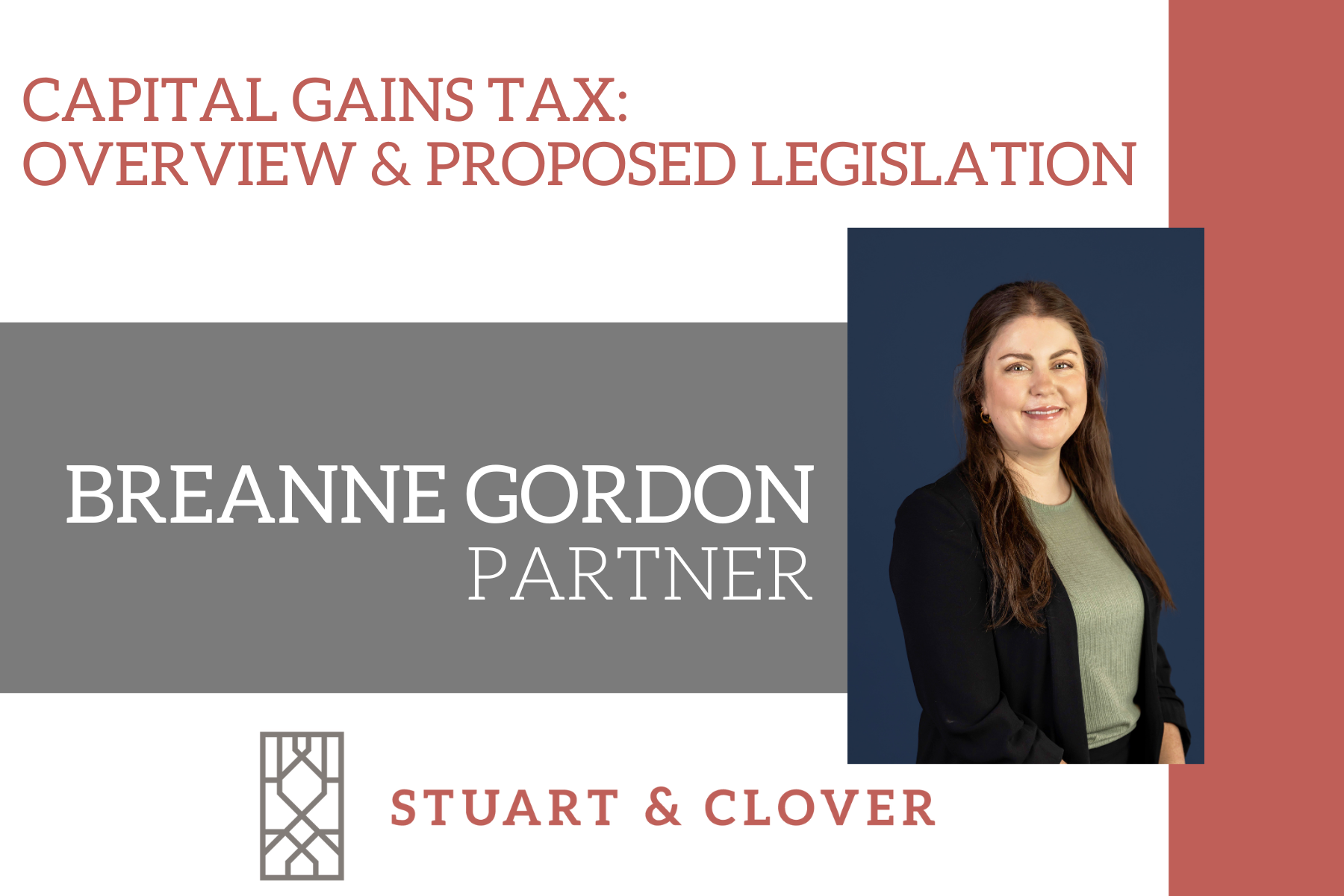Capital Gains Tax: Overview and Proposed Legislation
What
Capital gains tax is a tax on profit made when selling certain assts. The most common assets subject to capital gains tax are stocks, bonds, real estate, jewelry, and vehicles. You calculate a “capital gain” by subtracting the original cost of the asset from the total sale price.
Capital Gain = Total Sale Price – Original Purchase Price
The following assets are not subject to capital gains tax:
Business inventory
Depreciable business property
A copyright
An artistic composition
A patent or invention
When
You must pay capital gains tax once you sell your asset. You will not owe any capital gains tax during your ownership of the asset, even if it increases in value during ownership. The capital gains tax is due when you sell the asset.
How
There are two types of capital gains: short-term and long-term. Short-term capital gains apply to assets that you have owned for a year or less, while long-term capital gains apply to assets that you have owned for more than a year.
Short-term capital gains are taxed at a higher rate than long-term capital gains to discourage short-term trading of stocks. Short-term capital gains are taxed at your normal income tax rate.
Long-term capital gains are taxed at a lower rate and the tax rate depends on your income tax bracket. If you fall in the 10-20% tax bracket, you typically pay no capital gains tax.
2021 Long-Term Capital Gains Tax
One exception to this tax rate is long-term capital gains on collectibles, like stamps, coins, and precious metals, which are taxed at a higher rate of 28%. Another exception applies to the sale of your principal residence. For a single person, the first $250,000 of his or her gain on the sale of his or her principal residence is excluded from their income for the year of the sale, as long as the individual has owned and lived in said residence for at least two years. This exception is $500,000 for the married filing jointly tax status.
Adjustments to Capital Gains Tax Basis
Currently, the law allows for a “stepped-up” tax basis for capital gains if you leave your assets to a family member when you die. Instead of your beneficiary paying capital gains based upon the sales price minus the original purchase price, your beneficiary will. be able to use the fair market value of the asset on your date of death as the tax basis, rather than the original purchase price. For example:
NORMAL TAX BASIS:
You buy Amazon stock for $100 and sell it 20 years later for $1,000. You will pay capital gains tax on $900 (sales price – original purchase price).
STEPPED UP BASIS:
You buy Amazon stock for $100. You leave that stock to your daughter in your trust. The value of the stock at the date of your death is $1,000. If she later sells the stock for $1,500, she will pay capital gains tax on $500 (sales price – value of asset at the date of your death). Without the stepped-up basis, she would pay capital gains tax on $1,400.
Proposed 2021 Legislation
Capital Gains Tax Rate Increase: President Biden has proposed increasing long-term capital gains tax from 37% to 39.6% for individual taxpayers with income above $400,000. If your income is subject to the additional 3.8% tax on net investment income, the new rate would be 43.4%.
Remove Stepped-Up Basis: Currently, the death of a property owner is not a taxable event. A decedent’s beneficiary receives the benefit of a stepped-up tax basis, as described above. President Biden has proposed removing that stepped-up basis and making death a taxable event, so that a decedent is taxed at the time of their death as if they sold all of their assets at fair market value at the time of their death.
Stuart & Clover can help you minimize or avoid capital gains tax, along with ensuring that proper lifetime gifts maximize your tax benefits. We keep abreast of changes in legislation and will help you manage your state plan accordingly.


